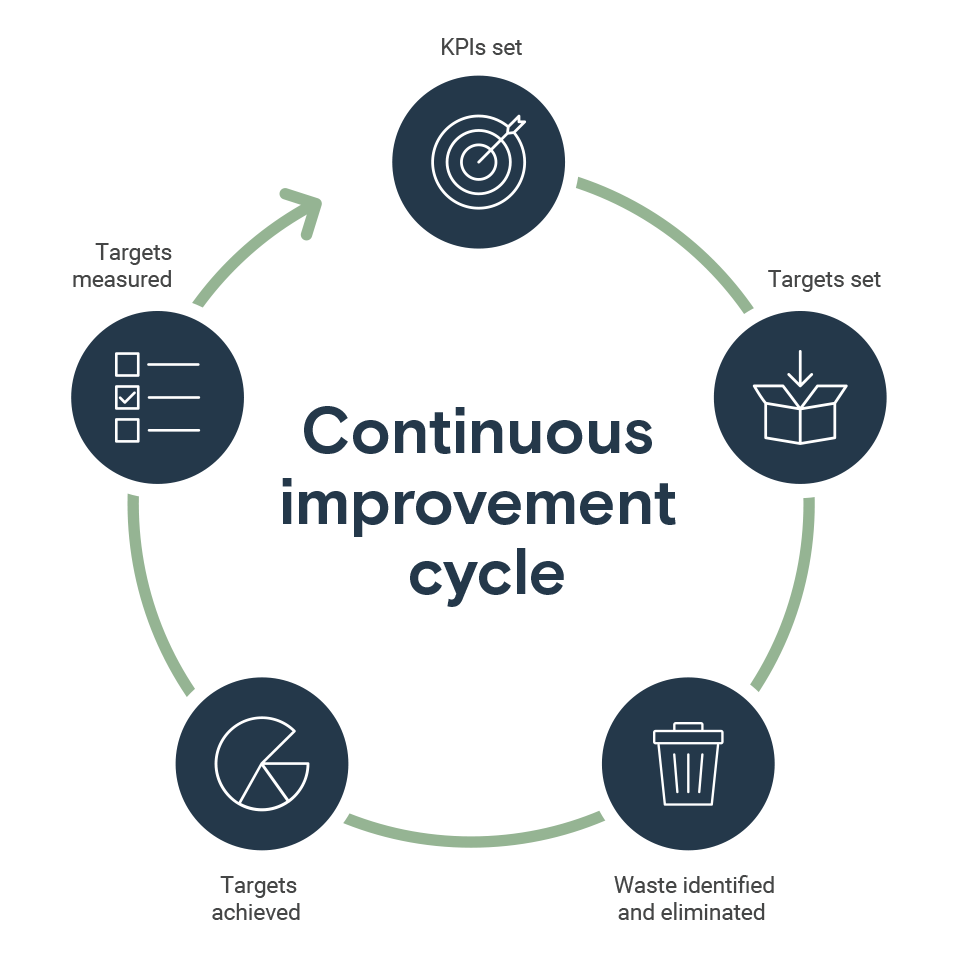In the fast-paced business world, maintaining a continuous workflow is crucial for the success of any organization. Efficient facilities management plays a pivotal role in supporting this uninterrupted flow of work, ensuring that operations run smoothly and productivity remains high. Let’s delve into the key reasons why it is important for facilities to support continuous workflow.
Enhanced Productivity
Supporting continuous workflow allows employees to remain focused on their tasks without interruptions. When facilities are optimized to meet the needs of the workforce, it creates an environment conducive to productivity. Properly maintained equipment, ergonomic workspaces, and efficient processes all contribute to a seamless workflow, empowering employees to deliver their best work.

Credit: www.marketingsource.com
Optimized Resources
Facilities that support continuous workflow ensure that resources are utilized effectively. This includes streamlined processes, well-maintained equipment, and adequate space utilization. By minimizing downtime and optimizing resource usage, facilities contribute to cost savings and improved operational efficiency.
Employee Well-being
A supportive facility management system takes into consideration the well-being of employees. From comfortable workstations to clean and safe environments, facilities that prioritize employee wellness contribute to higher job satisfaction and lower turnover rates. This, in turn, leads to a motivated and engaged workforce, driving continuous workflow and business success.

Credit: www.bdc.ca
Adaptability to Change
In today’s rapidly evolving business landscape, the ability to adapt to change is essential. Facilities that are designed to support continuous workflow are often more adaptable to changing needs and circumstances. Whether it’s integrating new technologies, accommodating an expanding workforce, or responding to market shifts, adaptable facilities promote agility and resilience within the organization.
Operational Resilience
Well-maintained facilities contribute to operational resilience. From robust infrastructure to reliable utilities, the support for continuous workflow ensures that operations can withstand unexpected disruptions. This resilience is essential for business continuity and mitigating the impact of unforeseen events, helping the organization to navigate challenges more effectively.
Improved Customer Satisfaction
Facilities that facilitate continuous workflow impact customer satisfaction. A smooth and uninterrupted workflow allows for efficient delivery of products and services, meeting or exceeding customer expectations. By enabling employees to perform at their best, facilities indirectly contribute to positive customer experiences, enhancing the organization’s reputation and fostering customer loyalty.
Strategic Alignment
Facilities that support continuous workflow are aligned with the strategic objectives of the organization. Whether it’s promoting innovation, enhancing operational efficiency, or fostering a positive work culture, facilities play a key role in realizing these strategic goals. This alignment ensures that the facility management contributes directly to the overall success of the business.
Regulatory Compliance
Adhering to regulatory standards and compliance requirements is a critical aspect of facility management. Facilities that support continuous workflow often have robust systems in place to ensure compliance with relevant regulations. This not only mitigates legal risks but also instills confidence in stakeholders regarding the organization’s commitment to operating ethically and responsibly.
Frequently Asked Questions Of Why Is It Important For Facilities To Support Continuous Workflow: Boost Productivity And Efficiency
How Does Continuous Workflow Benefit Facilities?
Continuous workflow ensures smooth operations, minimizes downtime, increases productivity, and improves overall efficiency in facilities.
What Are The Key Advantages Of Supporting Continuous Workflow?
Supporting continuous workflow leads to greater customer satisfaction, reduced costs, increased employee morale, and enhanced competitiveness in the market.
How Can Facilities Enhance Their Workflow?
Facilities can enhance their workflow by implementing efficient processes, utilizing technology, fostering effective communication, and promoting a culture of continuous improvement.
What Role Does Automation Play In Supporting Continuous Workflow?
Automation plays a vital role in supporting continuous workflow by eliminating manual tasks, reducing errors, improving accuracy, and enabling faster response times.
Conclusion
In conclusion, the importance of facilities to support continuous workflow cannot be overstated. From driving productivity and employee well-being to ensuring operational resilience and strategic alignment, well-managed facilities form the backbone of an organization’s success. By prioritizing continuous workflow, facilities contribute to a conducive work environment where both employees and the business can thrive.
